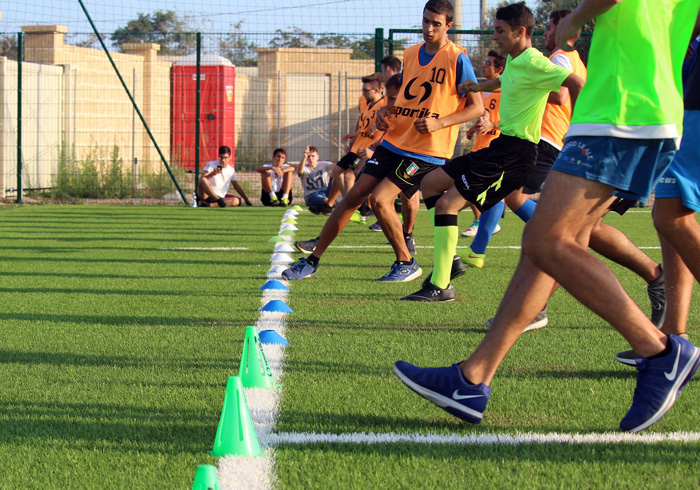Taking part in regular physical activity will become a necessary part of a child’s development, especially starting from ages 6 and 7. At this age they have basic running and jumping skills, can communicate verbally, and apply significant reasoning skills when forming decisions.
The best way to tell if soccer would be a good fit for a child is simply by letting them play. While they run on the field, parents should note how physically comfortable they are as they play. How do they run? How do they kick the ball? Do they look like they are having fun or do they look stressed and uninterested? Since soccer is a physically demanding sport, monitoring physical aspects of a child’s game will be significant as it will be a needed characteristic for a child to have to play.
Below are various factors to assist you in your evaluation if soccer is the right sport for your child:
Medical Information

Crucial information regarding a child’s fitness for soccer can be discovered through medical tests. While a child may look like they are in great physical shape for soccer, parents should still verify their child’s health with their pediatrician. Playing soccer increases levels of activity in the brain, heart, and respiratory system, so it is necessary for frequent medical checkups to ensure there are low risk factors for the child while playing.
Playing in a Team

For the average child, introduction to soccer is just running around and kicking the ball in random directions throughout the park. Although they may seem to be having fun, it is not sufficient enough to show if they are really fit for a future in soccer. It is essential to try and place the child in an organized team, where they can interact with coaches, teammates and opponents. The highlight of being a part of a team at such a young age is having fun with your teammates – running, dribbling, passing, shooting – all in attempts to win the game. If a child has little interest in playing with the team, then it may be a good idea to move the child to another team. If this lack of interest continues, then it may be a sign that the child is not very interested in team sports.
Playing Other Sports

While a child may seem fitting as a soccer player, they should also be given the opportunity to play other sports. Especially at younger ages, children have the ability to play a wide variety of sports, whether it being physically demanding, like soccer and football, or individual sports such as tennis and golf. After playing several different sports, parents can observe which their child enjoys the most and which they always look forward to. The child will also have a better understanding of what they are most interested in and will have a greater appreciation for that sport.
Cost to Play

It is not cheap to enroll into soccer, therefore parents must take into account the cost of raising a soccer child. Participation in recreational or travel teams will require significant financial investments giong into jerseys, balls, healthy food and travel expenses. The cost to play may create a dilemma for many parents that cannot afford soccer training, yet feel their child has a lot of talent and interest in the sport. Seeking out scholarships or alternative sources of funding may provide some relief.
Balancing Education

All children who play soccer will have to find a way to balance academics with their soccer schedules. If the child is unable to successfully balance these two, then it is probably in their best interest to pay more attention to their schoolwork and receiving good grades. As glamorous as sports stars may seem, the proportion of young people that do not make it to the top level far outweighs those who do. The best solution for a child with an impressive range of ability in soccer is by properly planning, focusing on their work so their development in school and soccer do not suffer.



